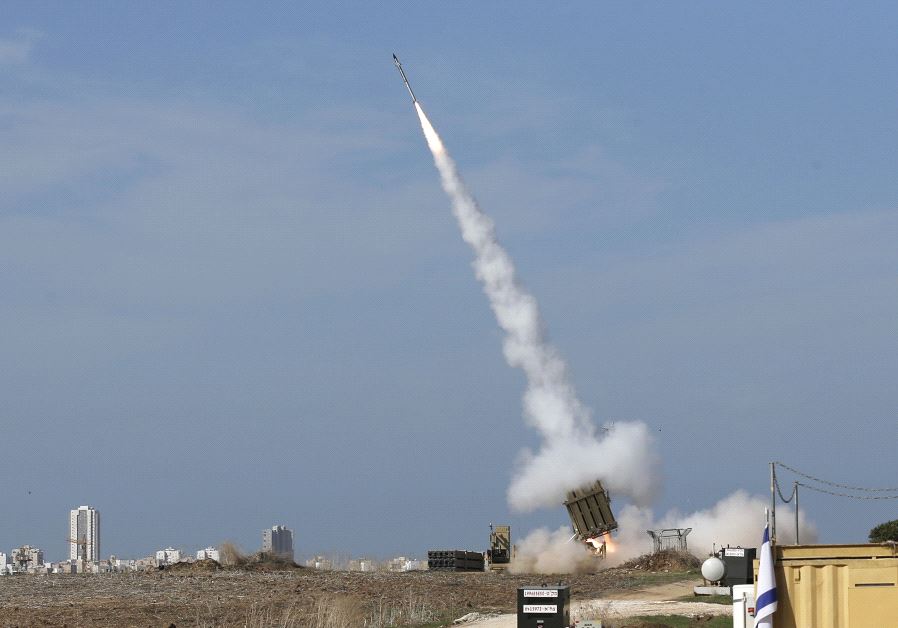Iron Dome intercepts projectile after two days of calm in southern Israel

Iron Dome launcher fires an interceptor rocket . (photo credit: REUTERS)
Israel’s Iron Dome missile-defense system intercepted a mortar shell fired from the Gaza Strip on Saturday evening while at least another two landed in open areas, the IDF Spokesperson’s Unit announced.
Rocket alert sirens were activated moments earlier in communities in the Eshkol Regional Council and Kissufim bordering the northern Gaza Strip.
A spokesperson from the Eshkol Regional Council said, “No projectiles have landed within Israeli settlements, at the moment we are scanning the perimeter and there is no knowledge of damages,” said a spokesperson from the Eshkol Regional Council.
“We are not willing to live with sporadic rocket fire into our territory,” said Gadi Yarkoni, head of the council. “We put our faith in the IDF and the political leadership to make the right decisions for return to long-term calm.”
According to a senior IDF officer in the Southern Command, the warning system has also improved for residents within seven kilometers of the Gaza Strip, giving them 23 seconds to run for shelter up from the previous 15 seconds.
IDF troops were searching the area for the fallen projectiles.
Local Palestinian media reported at least one tank shell striking a Hamas observation tower in response.
The Popular Resistance Committees has reportedly carried out tonight’s attacks in retaliation for the death of 21 year-old paramedic Razan al-Najar killed Friday during violent protests in southern Gaza.
A spokesperson from the Eshkol Regional Council said, “No projectiles have landed within Israeli settlements, at the moment we are scanning the perimeter and there is no knowledge of damages,” said a spokesperson from the Eshkol Regional Council.
The mortar fire came after two days of relative quiet in southern Israel after the most significant escalation between the IDF and terror groups in the Hamas-run coastal enclave in four years.
A senior IDF officer in the Southern Command said Saturday that Israel is at its closest point to war since Operation Protective Edge after over 100 mortars and rockets were launched towards Israeli communities by the Iranian-funded Islamic Jihad and Hamas.
It was the largest salvo fired from the Gaza Strip, and Israel retaliated with the harshest response since the end of Operation Protective Edge in 2014, striking 65 terror targets across the entire enclave.
While “the state currently does not want conflict in the south because there are other, wider considerations,” he said, “our policy is to return to security stability quickly, to continue to building the barrier against terror tunnels, and to enable the IDF to cope with greater threats. We acted wisely and logically this week and are prepared for a battle greater than the previous Gaza war, to which we are closer to than ever.”
According to the senior officer, the Iranian-funded Islamic Jihad did not show all its strength and under the guidance of Tehran might still be able to act against Israel from the Hamas-run Gaza Strip.
“This week, Islamic Jihad operated with Iranian consent and Iran has an interest in escalating the situation in Gaza in light of what is happening in Syria and other areas,” he told reporters.
Should war break out, the senior officer said, the Southern Command is in a state of full readiness for war, telling reporters that “we have significant tools that we still haven’t used. When and if the time comes we will use them.”





Comments are closed.